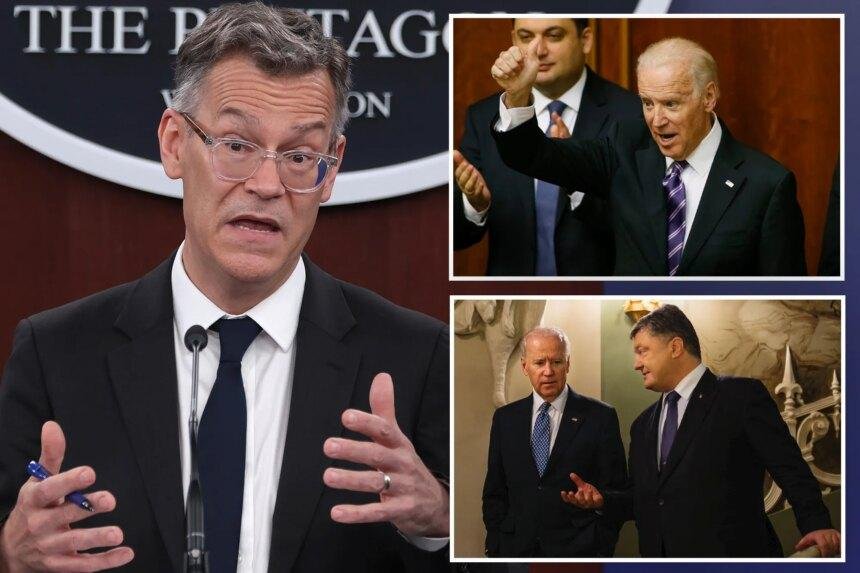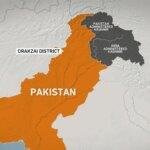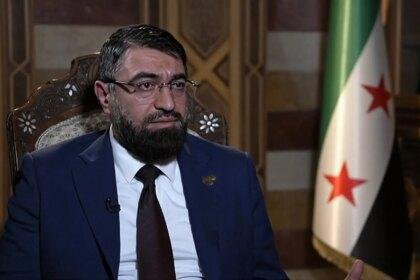Declassified Intelligence Reveals Ukrainian Discontent During Biden’s 2015 Visit
In a significant revelation, newly declassified intelligence documents have shed light on the discontent expressed by Ukrainian officials during Vice President Joe Biden’s visit to Kyiv in December 2015. The documents indicate that Ukrainian leaders felt “bewildered and disappointed” by Biden’s speech condemning corruption, which they perceived as hypocritical given his family’s ties to the controversial energy firm Burisma. This situation raises questions about the integrity of U.S. foreign policy and the potential politicization of intelligence.
Background: Biden’s Role in Ukraine
Biden’s involvement in Ukraine dates back to the aftermath of the 2014 Maidan revolution, which ousted the pro-Russian President Viktor Yanukovych. As part of the Obama administration’s efforts to support Ukraine, Biden made multiple trips to the country, emphasizing the need for reforms and anti-corruption measures. However, his family’s financial connections to Burisma, a company under investigation for corruption, have complicated this narrative.
During his December 2015 visit, Biden delivered a speech in the Ukrainian parliament, labeling corruption as a “cancer” that needed to be eradicated. However, the timing of his remarks raised eyebrows, especially since his son, Hunter Biden, was receiving substantial compensation for serving on Burisma’s board.
Suppression of Intelligence Reports
According to a senior CIA official, the report detailing Ukrainian officials’ reactions to Biden’s visit was suppressed at the request of Dr. Colin Kahl, Biden’s then-national security adviser. This unusual decision prevented the report from being included in the Presidential Daily Brief (PDB), a critical intelligence document meant to inform the President of emerging global issues.
The email correspondence from February 2016, which has recently come to light, indicates that Kahl expressed a strong preference against disseminating the report. This raises concerns about the integrity of the intelligence process and whether political considerations influenced the decision-making.
Ukrainian Officials’ Concerns
The declassified report reveals that Ukrainian officials believed Biden’s visit was primarily a public relations exercise rather than a genuine effort to engage in substantive discussions. They noted that the U.S. media scrutiny surrounding Biden’s family ties to Burisma highlighted a perceived double standard in U.S. policy toward corruption.
The report states, “These officials assessed that the U.S. Vice President had come to Kyiv almost exclusively to give a generic public speech and had not had any intention of discussing substantive matters with Poroshenko or other officials within the Ukrainian government.” This sentiment underscores the frustration felt by Ukrainian leaders, who were seeking meaningful support from the U.S. during a tumultuous period.
The Burisma Connection
The backdrop of Biden’s visit is further complicated by Hunter Biden’s financial ties to Burisma. Just a month prior to the visit, an executive from Burisma had emailed Hunter a list of “deliverables” in exchange for his board compensation, which included leveraging high-ranking U.S. officials to influence Ukrainian investigations into Burisma’s owner, Mykola Zlochevsky.
This context raises questions about the motivations behind Biden’s strong stance against corruption. While he publicly condemned corrupt practices, his family’s financial interests in Burisma cast a shadow over his intentions. The juxtaposition of Biden’s anti-corruption rhetoric and Hunter’s lucrative position on Burisma’s board has led to accusations of a conflict of interest.
The Fallout from Biden’s Visit
In the days following Biden’s visit, he famously threatened Ukrainian President Petro Poroshenko with the withholding of $1 billion in loan guarantees unless Prosecutor General Viktor Shokin was dismissed. Biden later recounted this incident, boasting about his influence in securing Shokin’s removal. However, Shokin’s replacement, Yuriy Lutsenko, subsequently dropped all investigations into Burisma and Zlochevsky, raising further questions about the effectiveness of U.S. anti-corruption efforts in Ukraine.
The implications of these events extend beyond individual actions; they reflect a broader narrative about the complexities of U.S. foreign policy in Ukraine. The intertwining of personal interests and diplomatic efforts has led to skepticism regarding the U.S. commitment to genuine reform in Ukraine.
Intelligence Community’s Response
The senior CIA official who discussed the report’s suppression emphasized that such actions are “extremely rare and unusual.” The official noted that the intelligence community typically operates independently of political influence, and the decision to suppress the report deviated from standard practices. This incident has prompted calls for greater transparency and accountability within the intelligence community.
Director John Ratcliffe, who ordered the internal review that uncovered the report, has expressed concern over the politicization of intelligence. He stated, “This is an example of the kind of politicization of intelligence that we need to work to eliminate in the intelligence community and for which we will have zero tolerance.”
Conclusion: A Complex Legacy
The revelations surrounding Biden’s 2015 visit to Ukraine highlight the intricate interplay between U.S. foreign policy, personal interests, and the integrity of intelligence operations. As the U.S. continues to navigate its relationship with Ukraine, the lessons from this episode serve as a reminder of the importance of transparency and accountability in both diplomatic and intelligence efforts. The ongoing scrutiny of Biden’s actions and the implications for U.S. policy in Ukraine will likely persist as the nation grapples with its complex legacy in the region.











